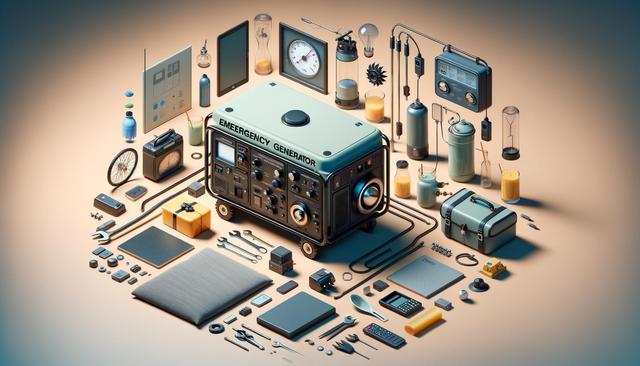Why an Emergency Generator Is a Smart Investment for Homeowners
Power outages can strike unexpectedly, and having an emergency generator in place offers peace of mind and protection.

Understanding the Role of an Emergency Generator
An emergency generator is a backup power solution designed to automatically or manually supply electricity during an outage. Whether caused by extreme weather, utility failures, or maintenance issues, power interruptions can disrupt daily life and pose risks to home safety and comfort. Emergency generators are typically fueled by gasoline, diesel, natural gas, or propane, and they range in size from portable units to whole-house systems. These generators ensure that critical appliances such as refrigerators, medical equipment, and heating systems continue to operate.
Generators are especially useful in areas prone to storms, hurricanes, or winter blizzards. They can support a range of needs, from powering essential household devices to keeping entire homes running. Modern emergency generators often come with features such as automatic transfer switches, which activate the generator the moment power is lost, minimizing downtime.
Types of Emergency Generators Available
There are several types of emergency generators, each suited to different applications and budgets. Choosing the right one depends on your specific power needs and how often you expect to use it. The most common types include:
- Portable Generators: Smaller and more affordable, ideal for short-term outages or occasional use.
- Standby Generators: Permanently installed and capable of powering entire homes or large appliances automatically.
- Inverter Generators: Known for quiet operation and clean power, suitable for sensitive electronics.
Each type has its own advantages. Portable generators are flexible and easy to store, while standby generators provide seamless power without the need for manual intervention. Inverter generators are a great choice for those looking for efficient, low-noise backup power for essential electronics.
Key Considerations Before Purchasing
Before investing in an emergency generator, it’s important to evaluate your household’s power requirements. Consider the total wattage of the devices you plan to use during an outage and choose a generator that can handle the load. Fuel type and availability in your area should also influence your decision. For instance, if natural gas is readily accessible, a natural gas-powered generator might be a more practical choice.
Also, think about the following factors:
- Installation: Standby generators often require professional installation and permits.
- Maintenance: Regular servicing keeps your generator reliable during emergencies.
- Noise level: Some generators can be loud, which may be a concern in residential areas.
- Budget: Prices vary widely depending on size, features, and brand.
Doing proper research and consulting with a licensed electrician can help ensure you select a generator that fits both your needs and local regulations.
Maintenance Tips for Long-Term Reliability
Routine maintenance is essential to keep an emergency generator functioning when it’s needed most. Neglecting upkeep can lead to operational failures during critical times. For portable generators, maintenance often includes checking oil levels, testing the battery, inspecting spark plugs, and ensuring fuel is fresh. Standby generators may have more complex systems that require professional servicing.
Useful maintenance practices include:
- Running the generator monthly to keep components lubricated and verify functionality.
- Replacing oil and filters according to the manufacturer’s schedule.
- Keeping the unit clean and free from dust or debris, especially around air intake and exhaust areas.
- Monitoring fuel levels and checking for leaks or corrosion.
Some advanced models come with self-diagnostic features or can be monitored remotely, making maintenance easier. Having a regular checklist and scheduling annual inspections can help extend the lifespan of your generator significantly.
The Importance of Safety and Proper Usage
Using an emergency generator safely is just as important as owning one. Improper use can lead to accidents, including carbon monoxide poisoning, electrical hazards, and fire risks. Always follow the manufacturer’s instructions and local codes when operating or installing a generator.
Essential safety guidelines include:
- Never running a generator indoors or in enclosed spaces.
- Placing the unit at least 20 feet away from windows and doors to avoid fumes entering the home.
- Using heavy-duty, outdoor-rated extension cords if connecting appliances directly.
- Installing carbon monoxide detectors in your home as an added precaution.
If you’re installing a standby generator, work with a certified professional to ensure all connections and fuel lines are secure and up to code. Proper grounding and ventilation are also crucial components of a safe installation.